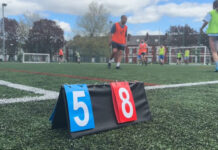What was once a thriving pastime, pigeon racing in Britain, is now facing a crisis. With memberships falling and events being cancelled, veteran fanicer Paul Clemence reflects on a lifetime in the sport.
Pigeon racing was once a popular sport in Britain, hitting its peak in the 1950s.
Nowadays, there are far fewer people involved and in March, the Royal Pigeon Racing Association announced their annual One Loft race was cancelled.
A dying sport
They announced on their website the annual event had been cancelled due to a lack of entries.
Since the 1950s, the number of pigeon racing fanciers has been declining, and it continues to decrease by around 7% every year.
Western Europe has seen a huge decrease in the number of people taking part. Yet numbers are flourishing in China and Central Asia!
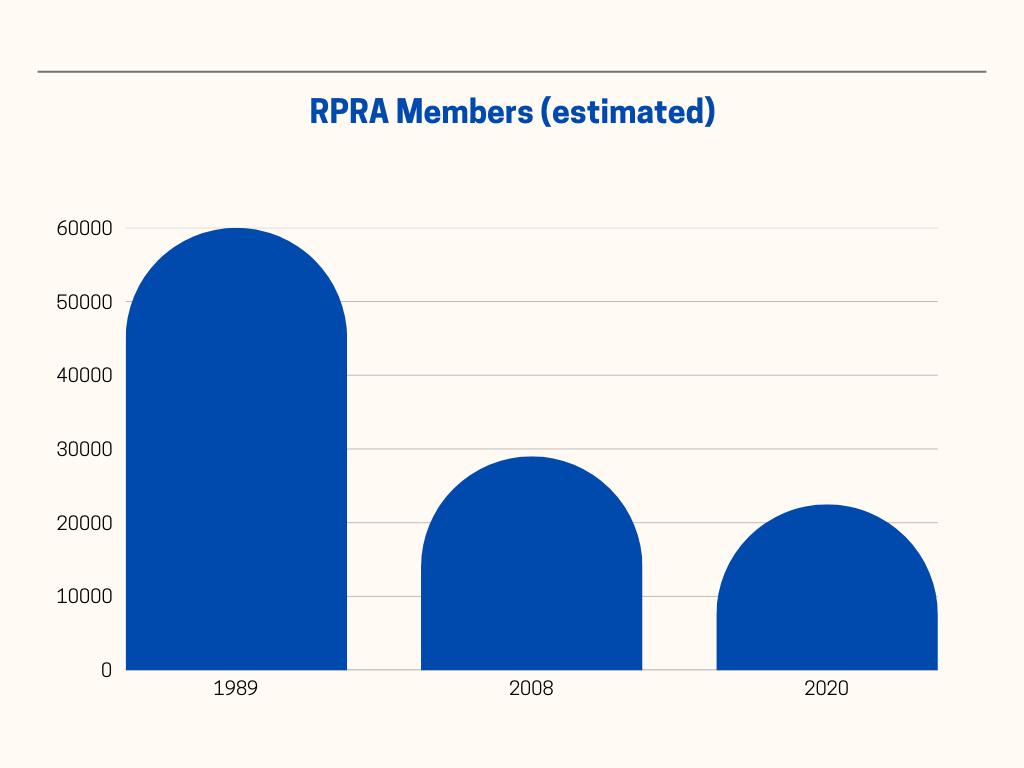
Paul Clemence is a pigeon racing fancier in Heswall, and he fears for the future of the sport in the UK.
He said: “It’s very bleak.
“I’m 76 and I’d say I’m in the top 10% of the youngest people, there are very few youngsters coming into the sport.
“I think if we get another 10 years out of it I think it will be finished unfortunately.”
Mr Clemence started his life with pigeons as a young boy on the Wirral and owned an allotment at Arrowe Park, like many other pigeon fanciers.
He currently has around 75 pigeons in his loft, which is spread out across his garden.
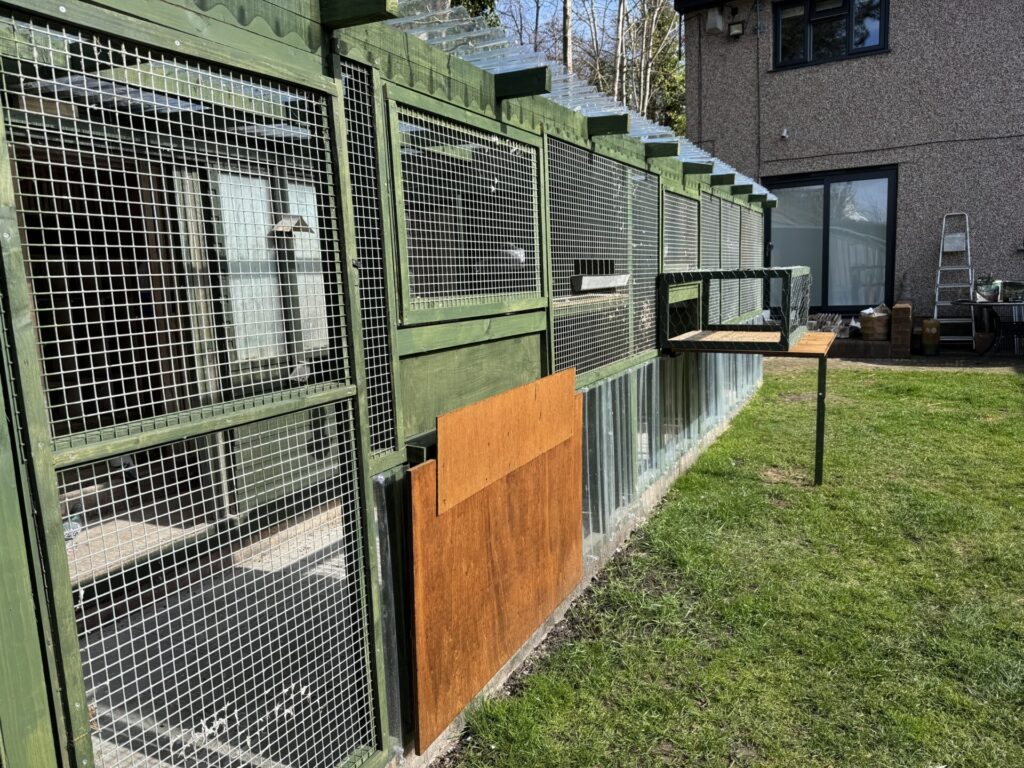
Pigeon racing decline on Merseyside
Merseyside has a rich history of racing pigeons and many clubs still set up in the area.
Despite the rich history of the sport, Mr Clemence claims it isn’t as rich as it once was.
He said: “When I first started, the Heswall Society had 25 members, today I am the only member within that radius.
“I don’t function as a club, I merely send my pigeons as trainers.”
This is just one of a few challenges pigeon racers face in the UK.
Predators have always been a big issue for pigeon fanciers during the early spring months, and the recent Bird Flu protection zones put in place across the Wirral have also caused problems.
And Mr Clemence believes there is an event bigger challenge in the way.
“Global warming has its risks.
“Years ago you were guaranteed to get all your birds back, for some reason these days you can have ideal conditions and there can be severe losses.
“It seems to be a lot more of an issue with the younger birds than the older ones.”
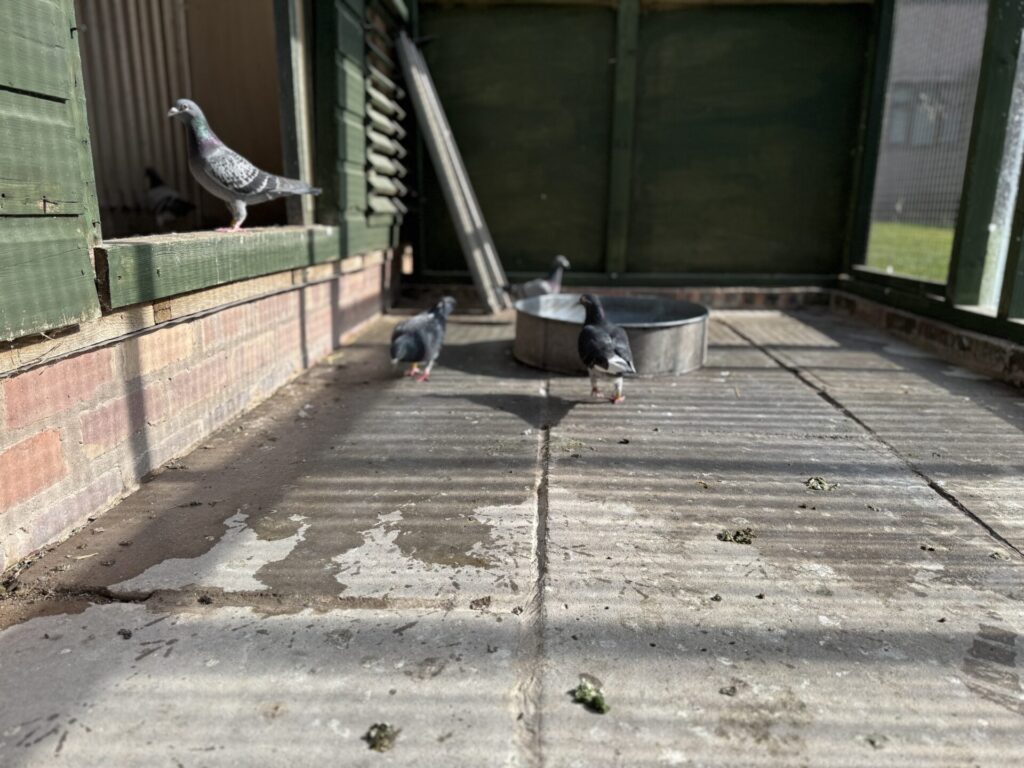
Back in 2021, many pigeon races in the UK saw several pigeons go missing during the race, with some arguing that global warming affected this.
However, experts are researching what is causing many pigeons to go missing.
A deep love for pigeon racing
Despite issues he faces, Mr Clemence still loves his time as a pigeon fancier.
“I enjoy the breeding, I enjoy the training and I enjoy the conditioning more than waiting for the pigeon to come on a Saturday.
“But that doesn’t mean I don’t enjoy seeing the pigeons come home, just not to the same extent that I did do but when I’ve had pigeons for over 60 years, something is going to change isn’t it.”
Some things haven’t changed, and one of them is how Mr Clemence attends to his pigeons over the year.
Daniel Moffat spoke to Mr Clemence about the future of the sport. You can check it out here!
In the summer, he wakes up at 4.30am to get them out to fly ahead of long-distance racing or in the winter when he wakes up at 7.30am.
There are other parts that he makes sure he covers during different times of the year and one of pigeon racing downsides.
He said: “I feed once a day until the clock goes forward in March when it becomes twice a day.
“Then in October, I reduce to one feed a day.”
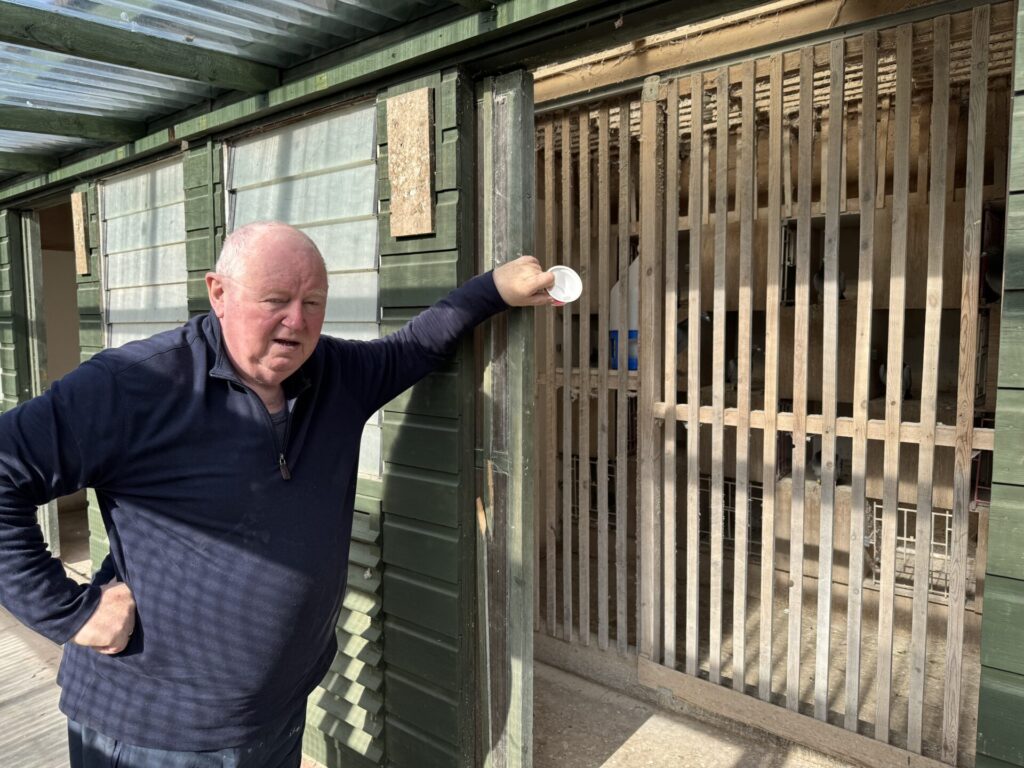
After being in the sport for 60 years, Mr Clemence has had some memorable moments.
“When I was 15 I had a very good pigeon which should tell you a lot because I was inexperienced, and that pigeon won 10 races at the Heswall Society, despite what I was doing to it.
“That tells you it’s good pigeons that make good fanciers.”
Despite some of the demoralising numbers in pigeon racing today, Mr Clemence is a living testament to the dedication it takes to be a true fancier.
His love for pigeon racing, from breeding to training, reflects a deep bond with the birds that go beyond just competition.
“The longer I’ve had them, the more I realise I don’t know it all.”
(Featured image by Daniel Moffat)


